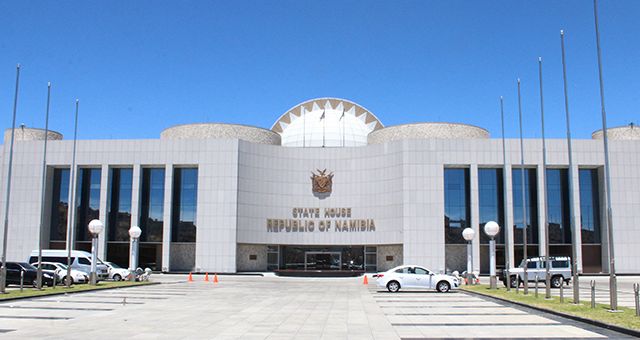A FEW weeks ago, I delivered a public lecture in Switzerland whose objective was to probe and think about the state of our democracy.
As a question to my intervention, one of the participants wanted to know why I placed excessive responsibility on the part of leaders in the democratisation process, and not on other forces such as civil society and the general population. Part of my response was that the political leadership in a third-wave context like ours would determine whether we would succeed or fail as a democracy (and country), and not civil society or the mass of the population.Leaders are too important to ignore with regard to the kind of values and norms that we as ordinary folks will internalise.Thus, if leaders are convinced democrats and deal with each other as such, we are likely to live by democratic values, and importantly respect those values.Such a discussion about the values and norms of leaders provide useful pointers to understanding the difficulties that we have at present in crafting a society whose foundation is not force, but KNOWLEDGE.If leaders read books, we are likely to be a society of BOOKS.Again, it shows potently that I have high expectations from the political leadership to play that transformational role in leading a majority black population that was denied knowledge to one that places KNOWLEDGE at the centre of political and public discussions.If leaders don’t raise the tone of the political discussion, some might as well throw (as they do) Sunday evening get-together parties to analyse Big Brother evictions! And I believe that some sections of our population have far more nuanced opinions about Big Brother as opposed to major political or policy issues.Why? In part, because our politics are devoid of any substantive issues and reflective policy discussions: and deal only with politics as winning elections and its lowest denominator: politics as power.Yet, on the contrary the success of countries like Singapore, China or South Korea points to a leadership (and a population) that is knowledgeable and whose analysis of the issues, both national and global, is forensic in outlook and application.Alas, the MCA saga points to a national embarrassment.And it has to do with the knowledge and analysis (and the limits) that we put into governance.This saga is not only an indictment on the political executive and civil servants who (if it was true the document had shortcomings) should have detected them early before the “legal gurus” in the Youth League realised in a piecemeal manner that our country was being sold to Americans.On the cheap! If at all, as we heard from the Prime Minister and the Director General of the NPC, that the deal government negotiated was sound, it begs the question how the Party headquarters, notably the Politburo, would be the final arbiter in the case.Are we saying that the Party is better resourced than the technical skills we should expect from Cabinet, including the scrutiny from our government lawyers? If Cabinet accepted a bad deal, then it points to the collective failure of Cabinet and the government system.And sound analysis would posit that it is for the government system to correct those failures.If at all it turned out that the Youth League have got it wrong, we should not have allowed their rants and collective fantasies about the deal to make it difficult for us.We should have explained to them analytically that it is fine for fantasies about imperial forces and enemy agents to invade our collective subconsciousness.But in the face of rational arguments (the good that comes with the deal as the PM ands DG argued), it is incumbent upon those who oppose the deal to evolve and adapt their mentalities to the realities of global interdependence.The discussion around the MCA deal and the ad-hoc manner in which various layers of the system dealt with it, points to a country that seems to be lacking in structure and substance.It is not the reflective behavior that is expected of a government system.Our leadership must play a pedagogical role and provide loaded forensic analyses, both about policy-substance and the values that should drive our nation.Unfortunately, I don’t know where we stand on this issue.It explains perhaps in part the retreat on the part of some to have in depth discussions about the Big Brother house shenanigans and trivia as opposed to political issues and BOOKS.* Alfredo Tjiurimo Hengari is a PhD fellow in political science at the University of Paris- Panthéon Sorbonne, France.Part of my response was that the political leadership in a third-wave context like ours would determine whether we would succeed or fail as a democracy (and country), and not civil society or the mass of the population.Leaders are too important to ignore with regard to the kind of values and norms that we as ordinary folks will internalise.Thus, if leaders are convinced democrats and deal with each other as such, we are likely to live by democratic values, and importantly respect those values.Such a discussion about the values and norms of leaders provide useful pointers to understanding the difficulties that we have at present in crafting a society whose foundation is not force, but KNOWLEDGE.If leaders read books, we are likely to be a society of BOOKS.Again, it shows potently that I have high expectations from the political leadership to play that transformational role in leading a majority black population that was denied knowledge to one that places KNOWLEDGE at the centre of political and public discussions.If leaders don’t raise the tone of the political discussion, some might as well throw (as they do) Sunday evening get-together parties to analyse Big Brother evictions! And I believe that some sections of our population have far more nuanced opinions about Big Brother as opposed to major political or policy issues.Why? In part, because our politics are devoid of any substantive issues and reflective policy discussions: and deal only with politics as winning elections and its lowest denominator: politics as power.Yet, on the contrary the success of countries like Singapore, China or South Korea points to a leadership (and a population) that is knowledgeable and whose analysis of the issues, both national and global, is forensic in outlook and application.Alas, the MCA saga points to a national embarrassment.And it has to do with the knowledge and analysis (and the limits) that we put into governance.This saga is not only an indictment on the political executive and civil servants who (if it was true the document had shortcomings) should have detected them early before the “legal gurus” in the Youth League realised in a piecemeal manner that our country was being sold to Americans.On the cheap! If at all, as we heard from the Prime Minister and the Director General of the NPC, that the deal government negotiated was sound, it begs the question how the Party headquarters, notably the Politburo, would be the final arbiter in the case.Are we saying that the Party is better resourced than the technical skills we should expect from Cabinet, including the scrutiny from our government lawyers? If Cabinet accepted a bad deal, then it points to the collective failure of Cabinet and the government system.And sound analysis would posit that it is for the government system to correct those failures.If at all it turned out that the Youth League have got it wrong, we should not have allowed their rants and collective fantasies about the deal to make it difficult for us.We should have explained to them analytically that it is fine for fantasies about imperial forces and enemy agents to invade our collective subconsciousness.But in the face of rational arguments (the good that comes with the deal as the PM ands DG argued), it is incumbent upon those who oppose the deal to evolve and adapt their mentalities to the realities of global interdependence.The discussion around the MCA deal and the ad-hoc manner in which various layers of the system dealt with it, points to a country that seems to be lacking in structure and substance.It is not the reflective behavior that is expected of a government system.Our leadership must play a pedagogical role and provide loaded forensic analyses, both about policy-substance and the values that should drive our nation.Unfortunately, I don’t know where we stand on this issue.It explains perhaps in part the retreat on the part of some to have in depth discussions about the Big Brother house shenanigans and trivia as opposed to political issues and BOOKS. * Alfredo Tjiurimo Hengari is a PhD fellow in political science at the University of Paris- Panthéon Sorbonne, France.
Stay informed with The Namibian – your source for credible journalism. Get in-depth reporting and opinions for
only N$85 a month. Invest in journalism, invest in democracy –
Subscribe Now!










